Mehdi Bahrami
AugmentedCode: Examining the Effects of Natural Language Resources in Code Retrieval Models
Oct 16, 2021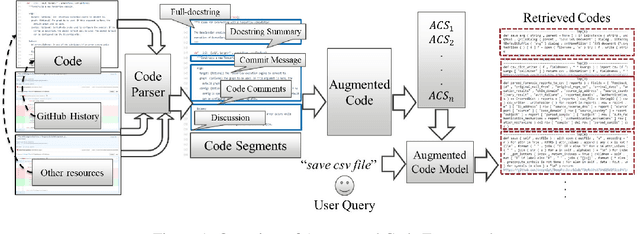

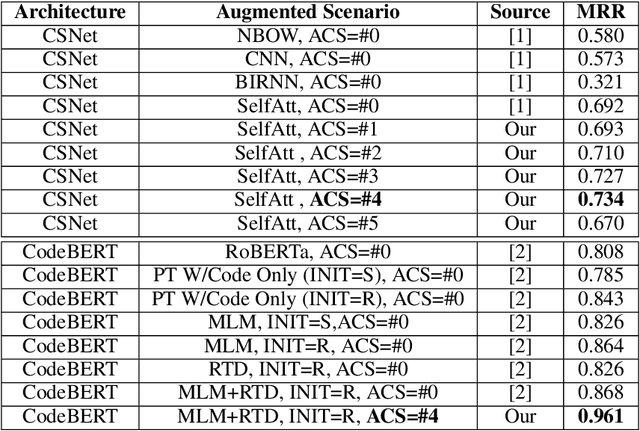

Abstract:Code retrieval is allowing software engineers to search codes through a natural language query, which relies on both natural language processing and software engineering techniques. There have been several attempts on code retrieval from searching snippet codes to function codes. In this paper, we introduce Augmented Code (AugmentedCode) retrieval which takes advantage of existing information within the code and constructs augmented programming language to improve the code retrieval models' performance. We curated a large corpus of Python and showcased the the framework and the results of augmented programming language which outperforms on CodeSearchNet and CodeBERT with a Mean Reciprocal Rank (MRR) of 0.73 and 0.96, respectively. The outperformed fine-tuned augmented code retrieval model is published in HuggingFace at https://huggingface.co/Fujitsu/AugCode and a demonstration video is available at: https://youtu.be/mnZrUTANjGs .
A Systematic Investigation of KB-Text Embedding Alignment at Scale
Jun 03, 2021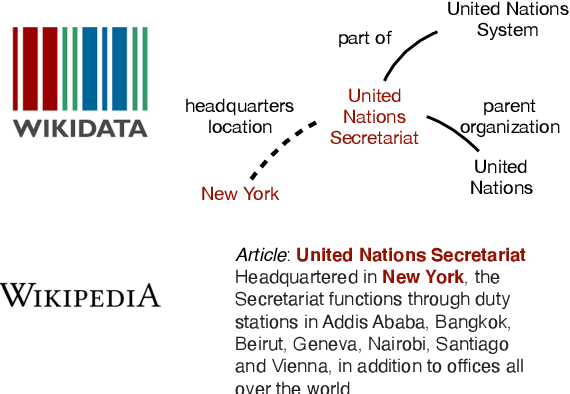
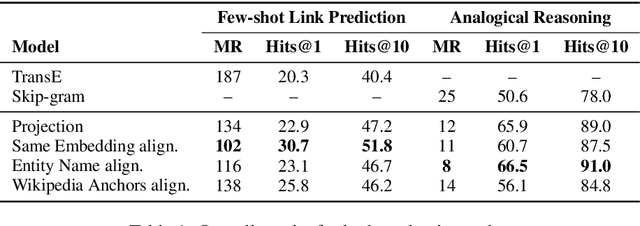
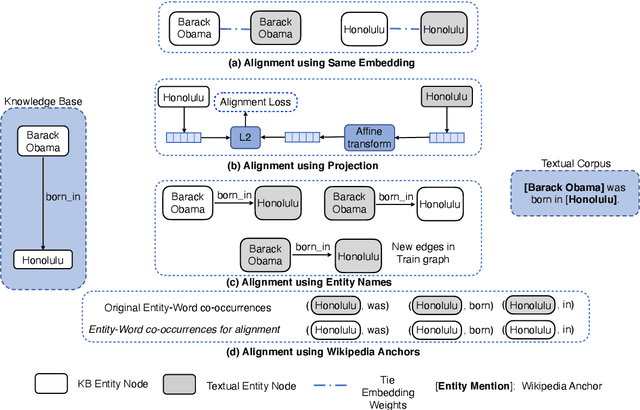
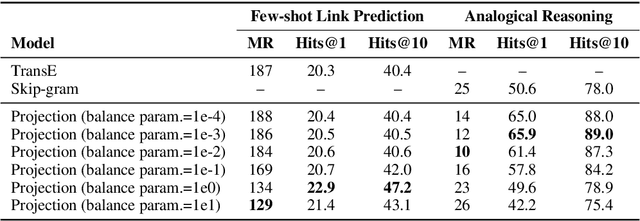
Abstract:Knowledge bases (KBs) and text often contain complementary knowledge: KBs store structured knowledge that can support long range reasoning, while text stores more comprehensive and timely knowledge in an unstructured way. Separately embedding the individual knowledge sources into vector spaces has demonstrated tremendous successes in encoding the respective knowledge, but how to jointly embed and reason with both knowledge sources to fully leverage the complementary information is still largely an open problem. We conduct a large-scale, systematic investigation of aligning KB and text embeddings for joint reasoning. We set up a novel evaluation framework with two evaluation tasks, few-shot link prediction and analogical reasoning, and evaluate an array of KB-text embedding alignment methods. We also demonstrate how such alignment can infuse textual information into KB embeddings for more accurate link prediction on emerging entities and events, using COVID-19 as a case study.
A New Method for Knowledge Representation in Expert System's
Dec 18, 2008



Abstract:Knowledge representation it is an essential section of a Expert Systems, Because in this section we have a framework to establish an expert system then we can modeling and use by this to design an expert system. Many method it is exist for knowledge representation but each method have problems, in this paper we introduce a new method of object oriented by XML language as XMLKR to knowledge representation, and we want to discuss advantage and disadvantage of this method.
* IEEE Procceding 2008
 Add to Chrome
Add to Chrome Add to Firefox
Add to Firefox Add to Edge
Add to Edge